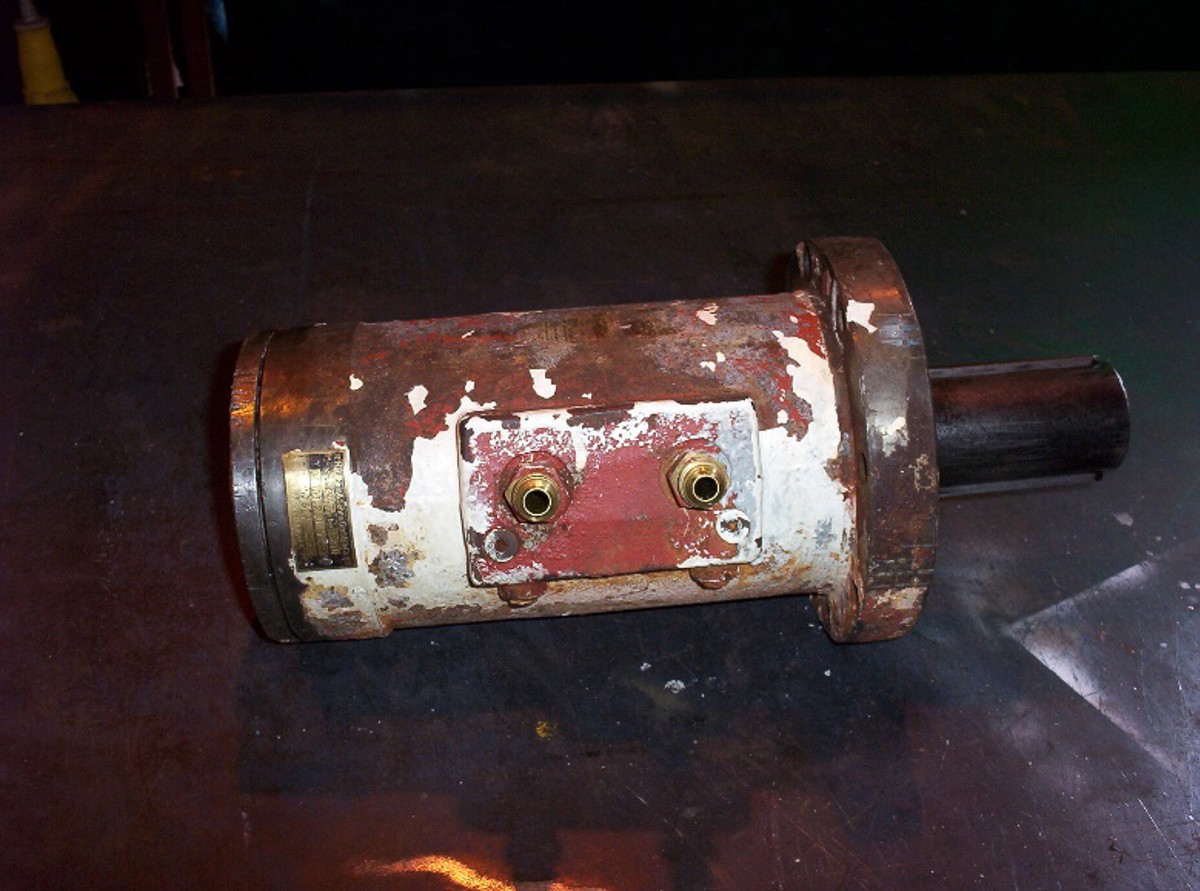Failure of chamber door hydraulic actuator
- Safety Flash
- Published on 14 August 2007
- Generated on 25 February 2026
- IMCA SF 07/07
- 1 minute read
Jump to:
A Member has reported the failure of a transfer under pressure (TUP) door hydraulic actuator.
What happened?
After divers had transferred from the chamber into the bell, an attempt was made to close the upper door using the hydraulic hand pump. The hydraulic actuator failed, causing the door to drop. Safety procedures in place prevented any injury to the divers.

failed actuator
What were the causes?
Upon further investigation it transpired that the heliox gas mix had managed to migrate past the seals inside the rotary actuator and had pushed the hydraulic fluid out of the hydraulic lines, losing hydraulic control of opening and closing the door.
The actuator was removed from the chamber and stripped down completely. All the seals inside the actuator were found to be completely perished inside.
This particular actuator had never been removed, stripped and seals checked for over ten years due to the inaccessibility of the unit and being hidden under deck plating.
Lessons learnt
Members are reminded of the importance of identifying critical components and the subsequent inclusion of these components into the planned maintenance systems.
IMCA Safety Flashes summarise key safety matters and incidents, allowing lessons to be more easily learnt for the benefit of the entire offshore industry.
The effectiveness of the IMCA Safety Flash system depends on the industry sharing information and so avoiding repeat incidents. Incidents are classified according to IOGP's Life Saving Rules.
All information is anonymised or sanitised, as appropriate, and warnings for graphic content included where possible.
IMCA makes every effort to ensure both the accuracy and reliability of the information shared, but is not be liable for any guidance and/or recommendation and/or statement herein contained.
The information contained in this document does not fulfil or replace any individual's or Member's legal, regulatory or other duties or obligations in respect of their operations. Individuals and Members remain solely responsible for the safe, lawful and proper conduct of their operations.
Share your safety incidents with IMCA online. Sign-up to receive Safety Flashes straight to your email.